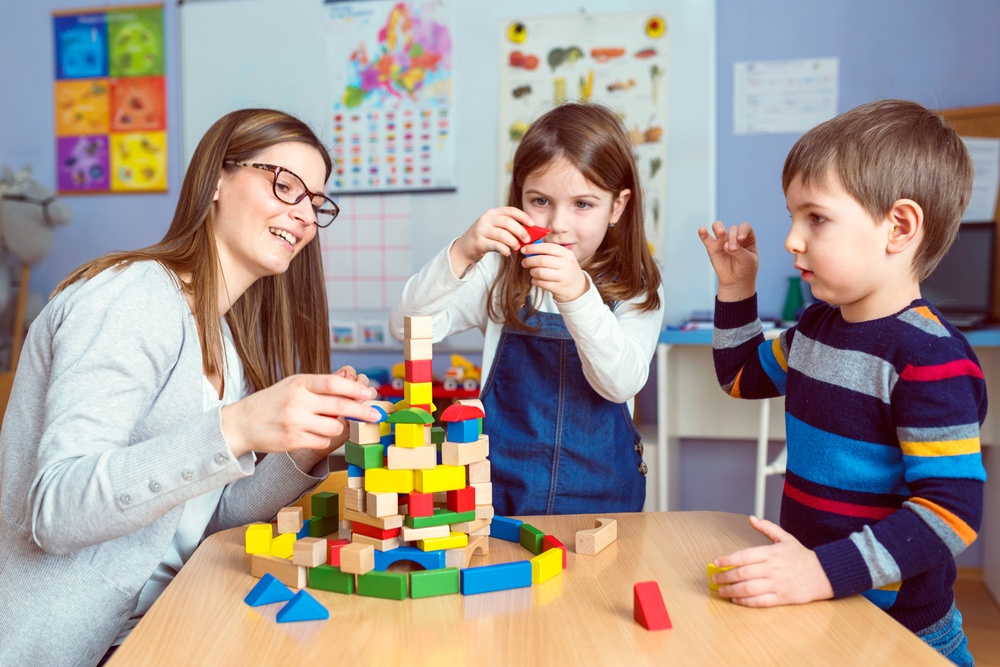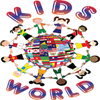Childcare, whether in the form of daycare centers, family-based care, or with a trusted caregiver, plays a significant role in the lives of many families. For many parents, the decision to use childcare services is driven by various factors, such as work obligations, financial considerations, or a desire for their children to socialize and learn in a structured environment. We will explore the effects of childcare on children's development at kids world daycare, considering both the advantages and potential challenges.
Childcare and Early Cognitive Development
- Educational Stimulation: Quality child care can provide a structured environment that exposes children to early educational opportunities. Early childhood education programs in childcare centers often focus on developing cognitive and pre-academic skills. This can help children develop a strong foundation for learning, including early literacy and numeracy.
- Social Interaction: Childcare settings offer children the opportunity to interact with their peers. These social interactions promote cognitive development as children learn through observing, imitating, and collaborating with others. The exposure to diverse ideas and experiences can stimulate intellectual growth.
Childcare and Social Development
- Socialization: Childcare is a valuable setting for children to learn social skills. They interact with other children, develop friendships, and learn to navigate social situations. This exposure helps children become more socially competent, which can be beneficial as they transition to school and later stages of life.
- Independence: Childcare can foster independence in children. They learn to make choices, solve problems, and follow routines, which are vital life skills. This independence can contribute to healthy self-esteem and a sense of autonomy.
Childcare and Emotional Development
- Attachment and Separation: For some children, the experience of being in childcare settings can contribute to emotional development. It can teach them how to cope with separation from their parents, leading to the development of secure attachments. However, it's important to note that the nature of the childcare and the quality of care provided can greatly influence this aspect.
- Emotional Regulation: Childcare settings often involve managing emotions, such as dealing with frustration, sharing, and resolving conflicts. These experiences can help children develop emotional regulation skills, enhancing their overall emotional well-being.
Childcare and Language Development
- Language Exposure: In childcare, children are exposed to various language models. This can enrich their language development by increasing vocabulary, improving language fluency, and promoting effective communication.
- Bilingualism: In multicultural childcare settings, children may have the opportunity to learn and become proficient in multiple languages. Bilingualism has cognitive and cultural benefits, and early exposure to different languages can pave the way for long-term language development.
Childcare and Physical Development
- Physical Activity: Childcare facilities often incorporate physical activities and play into their routines. This can promote physical development, including the improvement of motor skills, coordination, and overall fitness.
- Nutrition: Quality childcare programs emphasize providing nutritious meals and snacks. A balanced diet supports physical development and overall health. Childcare providers ensure that children receive adequate nourishment during their time in care.
Challenges of Childcare on Children's Development
- Quality Variations: The impact of childcare on children's development is greatly influenced by the quality of care. High-quality childcare tends to have more positive effects, while low-quality care can lead to potential negative outcomes. Factors like caregiver-child ratio, caregiver qualifications, and safety measures are essential considerations.
- Stress and Anxiety: For some children, especially those who have difficulty adjusting to new environments, the experience of childcare can be stressful and anxiety-inducing. Separation anxiety, in particular, is a common challenge. It's crucial for parents and caregivers to address these emotions with sensitivity and support.
- Influence of Peer Group: While socialization in childcare can be beneficial, the influence of peers can also have drawbacks. Children may be exposed to negative behaviors or language from their peers, and this can impact their development if not addressed appropriately.
- Time Away from Parents: Spending extended hours in childcare can limit the time children spend with their parents. The quantity and quality of time spent with family members can influence children's emotional development and attachment.
Conclusion
Childcare has a notable impact on children's development. The effects are largely contingent on the quality of care, the nature of the childcare setting, and the child's individual characteristics. High-quality childcare can provide a stimulating and supportive environment that promotes cognitive, social, emotional, language, and physical development. However, potential challenges, such as stress, peer influence, and time away from parents, must be acknowledged and addressed. Ultimately, the decision to use childcare services should be based on the individual needs of the child and the family's circumstances, with a focus on ensuring that the childcare setting aligns with the child's best interests and development.


No comments yet